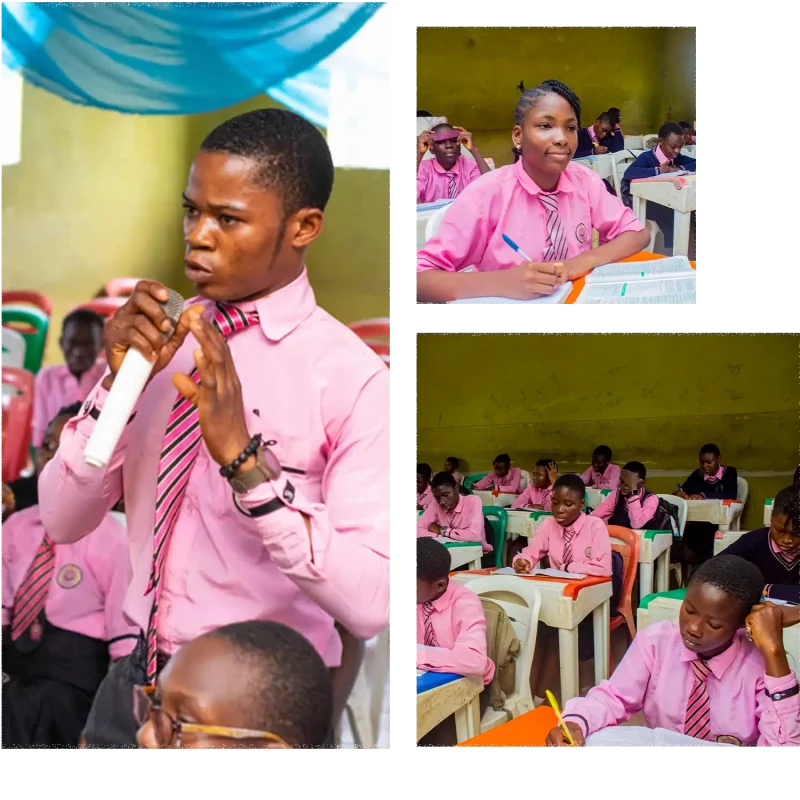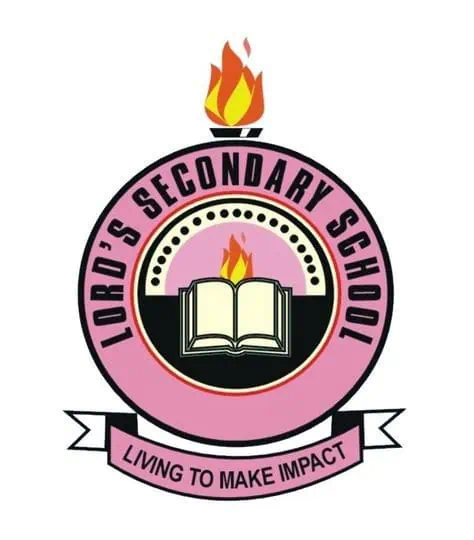Curriculum

Curriculum Overview
The curriculum at Lord’s Schools blends the British and Nigerian Curricula, offering a contemporary, flexible, and stimulating learning environment. It promotes holistic development, equipping students for the challenges of a competitive world and enabling them to forge their own paths.
Our child-centred education approach emphasizes not just self-discovery and personal development to their fullest potential, but also prioritizes key areas to enrich the learning experience and foster comprehensive growth.
- Nurturing Creativity and Innovation
- Strengthening Science and Mathematics Education
- Fostering a Culture of Information Science and Technology
- Instilling Positive Cultural Values and Discipline
At Lord’s Schools, educators deliver effective feedback and tailor teaching strategies to assessment outcomes and student progress, fostering personalized support and a commitment to lifelong learning.
Primary School
Year 1 to 5 (Grade 1 to 5)
We provide a practical and joyful learning environment that aligns with the developmental stages of our students. With a broad range of curricular and co-curricular opportunities, we foster confidence, care for others, and daily success. Our integrated curriculum promotes awareness of diverse cultures and equal opportunities for all. We prepare our pupils for life, developing 21st-century skills and emphasizing communication, self-discipline, and respect.
Subjects in The Lower Primary
Numeracy
Quantitative Reasoning
French
Music
Science
Fine Art
Grammar
Creative Writing / Handwriting
Comprehension & Poetry
Verbal Reasoning
Home Economics
Diction
Spelling / Dictation
CRK
Social Studies
Yoruba
ICT
Junior Secondary School
Year 7 to 9 (JS1 to JS3)
We offer a hybrid combination of international and national content-based curricula that provides flexibility for our learners. With a comprehensive range of 22 subjects, including those in Science, Technology, Engineering, Arts, and Mathematics (STEAM), our students have abundant opportunities to foster creativity, develop 21st-century skills, express themselves, and enhance their overall well-being.
We prioritize capacity building, emphasizing lifelong learning and the development of critical thinking skills. Our curriculum is designed to support students intellectually, socially, and emotionally, ensuring their holistic growth and success.
Subjects in The Junior Secondary School
English Studies
Oral English
Essay
Mathematics
CRS
Yoruba/ Igbo Language
French Language
Business Studies
BST
Basic Science
Basic Technology
PHE
ICT
Coding Robotic
PVS
Agricultural Science
Home Economics
NVE
Social Studies
Civic Education
Security Education
CULTURAL/CREATIVE ART
CCA II (Music)
CCA I (Visual Art)
Senior Secondary School
Year 10 to 12 (SS1 to SS3)
Our students choose subjects based on their year levels. Year 10 students select 12 subjects, Year 11 students select 11 subjects, and Year 12 students select 10 subjects (with a minimum of 8 or a maximum of 9 for WASSCE/SSCE and a minimum of 6 for IGCSE).
In Year 10, we highly recommend that all students take Further Mathematics for a broader understanding and to gain an advantage in UTME.
Alongside the four compulsory crosscutting subjects (English Language, General Mathematics, Civic Education, and One Trade/Entrepreneurial Studies), students have the opportunity to select subjects aligned with their career aspirations from the following departments:
- Science/Mathematics
- Humanities/Art/Sociaal Science
- Business/Commercial
Additionally, students are required to choose a compulsory Trade/Entrepreneurship/skill subject from the available options. They may choose one elective subject if they wish, outside their field of specialization, provided that the total number of examinable subjects does not exceed ten (10) for Year 12. This includes:
4 cross-cutting subjects (including 1 Trade/Entrepreneurship)
3 or 4 subjects from their chosen field of specialisation
1 elective subject
Elective subjects are chosen outside the student's specialized field of study. For example, a science student may opt for Music as an elective, while a Humanities student may choose Commerce.
The inclusion of electives ensures that students are exposed to a wide range of broad-based education without overwhelming them. The curriculum is divided into 10 areas, encompassing the syllabuses of WAEC, NECO, and IGCSE.
We prioritize capacity building, emphasizing lifelong learning and the development of critical thinking skills. Our curriculum is designed to support students intellectually, socially, and emotionally, ensuring their holistic growth and success.
Senior Secondary School Departments & Subjects
English
English Language
Literature in English
Mathematics
Mathematics
Further Mathematics
Sciences
Biology
Physics
Chemistry
ICT
Information Communication Technology
Languages
French
Yoruba
Igbo
Sports
Physical and Health Education
Vocational
Agricultural Science
Food & Nutrition
Virtual Art
Technical Drawing
Home Management
Clothing & Textile
Basic Electricity
Music
Trade Subjects
Data Processing
Animal Husbandry
Fisheries
Photography
Dye & Bleaching
Catering & Craft Practice
Book Keeping
Humanities
Geography
Civic Education
IRK/CRK
Government
History
Business
Business Subject (IGCSE) / Commerce
Economics
Accounting
Insurance
